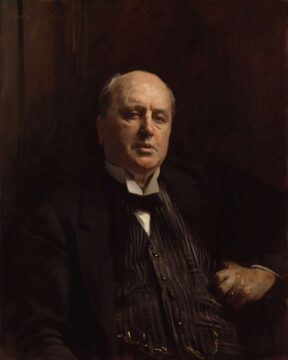Lauren Christensen at the NYT:
 Forget everything you’ve ever heard about less being more, about economy of syntax, about the read-between-the-lines profundity of wide-margined, double-spaced “spare prose.” To read a paragraph by Henry James — a single one can sprawl across pages — is to luxuriate in linguistic excess.
Forget everything you’ve ever heard about less being more, about economy of syntax, about the read-between-the-lines profundity of wide-margined, double-spaced “spare prose.” To read a paragraph by Henry James — a single one can sprawl across pages — is to luxuriate in linguistic excess.
An American expatriate who spent his adulthood in England, James (1843-1916) was the patron saint of exquisite verbosity; of circuitous, compulsively sub-claused sentences that contain all the twists and adventures his story lines lack. Reading the prodigious body of fiction he produced over four decades, between 1871 and 1911, you get the sense he lost himself so deeply in his recurrent themes — the innocence of America versus the experience and depravity of Europe, the psychological richness of everyday life — that he couldn’t help carrying on.
This applied to his nonfiction, too. James didn’t just write novels; he wrote about writing novels, obsessing over his craft the way his characters obsess over the minutiae of their lives.
more here.
